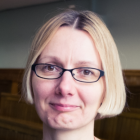Learning Café EPD14
Digital Capabilities Now and in the World to Come (Join for Cross-Sector Conversations)
Date Thursday, Dec 6 Time – Room: Queen
In his iconic 2005 article, Lee S. Shulman defines signature pedagogies as “types of teaching that organize the fundamental ways in which future practitioners are educated for their new professions.”
Today, there is no way around teaching digital capabilities as part of the education of future practitioners for their new professions. Here, however, things get murky. Does a history teacher require the same digital capabilities as a chemistry teacher, or to go further afield, as a dentist, or what about a ballet dancer, or a software developer? And over the next decade, won’t these requirements change? The concepts are certainly concrete, yet fascinating to discuss. Speculation, on these topics is also engaging - and can prove productive. This Learning Café invites you to reflect on your current digital capabilities (in daily work-life and as a citizen) as well as consider what these may be in the next 5-10-20 years, in order to create an action plan for digital capabilities for your role and organisation.
Moderator

Tunde Varga-Atkins
Learning Technology Developer, Centre for Innovation in Education, University of Liverpool, UK
As a Learning Technology Developer I support staff across the University in their curriculum and technology-enhanced development as well as being engaged in research and evaluation. One of my main research areas is exploring digital capabilities. I am currently writing up my thesis on digital capabilities in the disciplines for the e-Research and TEL PhD programme at Lancaster University. I have also led a number of institutional research and evaluation projects, such as evaluating the VLE (Virtual Learning Environment) Baseline and EMA (Electronic Management of Assessment) and have contributed at a more strategic level, including co-leading the University’s Digital Literacies Working Group. I also convene a regional research group, ELESIG NW with colleagues from the UK North-West and represent our regional group on the national committee of ELESIG. My interest in visual and other research methods, such as the nominal group technique all feature in my research and evaluation work.